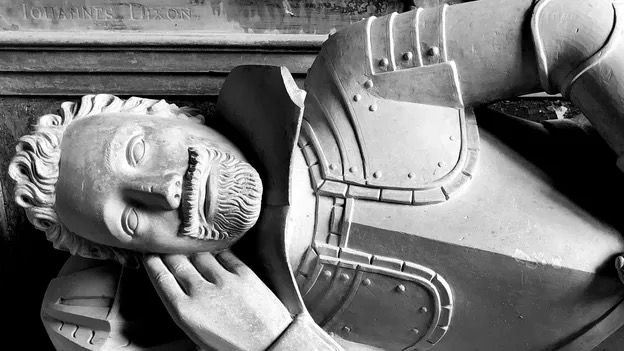Pasg Cymreig / Welsh Easter
- Templar Webmaster

- Apr 17, 2022
- 3 min read
Easter does not fall on a fixed date, but on the first Sunday after the full moon following the March equinox.

However, the Celtic Church of the Early Middle Ages in Wales had developed its own method of the dating of Easter, and refused to conform to Archbishop Augustine's demand in 597 that the papal method be used.
Over the following century, when most of the churches in the Celtic-speaking lands came to accept the Roman Easter, Wales was the only territory still refusing to conform. The English historian Bede claimed in his Ecclesiastical History of the English People in 731 that the Welsh "upheld their own bad customs against the true Easter of the Catholic Church."
Other Welsh Easter customs are:
Good Friday is a day of fasting and abstinence
Good Friday, or Y Groglith in Welsh is colloquially known as the Friday before Easter.
In Wales, it is recognised as the ‘Dydd Gwener y Groglith‘, literally translated as the ‘Friday of the Cross Reading’. It is well documented that no one works on Good Friday and, for some, it is one of the obligatory days of fasting and abstinence. When fasting, a person is permitted to eat one whole meal, and two smaller meals that together are not equal to a full meal. The traditional meal of choice is fish.
In Tenby, a seaside town in southwest Wales, people are known to walk barefoot to Church on this day. The streets were kept clear for the whole day, with no horses or carts and very few people so as to not disturb the Earth – the burial ground of Christ.
The custom of making Christ’s bed was also quite popular, especially amongst local children. They would gather river reeds, weave them into a Christ figure, fix it on a wooden cross, and then leave it in a quiet field or pasture to rest peacefully.
Palm Sunday is for fig pudding and new clothes
Sul y Blodau, or Palm Sunday, is the Sunday before Easter. It literally translates to the ‘Sunday of Flowers’ and is seen as the time to welcome spring after the long winter. Fig dishes such as fig pudding are commonly served on this day because of its association with the flowering of the fig tree. Other popular dishes include split pea soup and pax cakes.
In Wales, it was also custom to wear new clothes as a preparation for Easter and after the drabness of winter and solemnity of Lent. Traditionally, people tidy, clean, whitewash, and weed the graves of loved ones. They also decorate them with fanciful floral arrangements of rosemary, rue, crocuses, daffodils and primroses in the churchyards.
You take a trek up the nearest mountain on Easter Monday
Wales is known for it’s beautiful landscapes and the wonderful views from atop them. All across the country on Easter Monday (known in Welsh as Llyn y Pasg) people would take part in a procession: a pre-dawn trek up to the very top of the nearest mountain or hill to watch the sunrise, and celebrate the resurrection of Christ by seeing the first light of the day. In some areas, people would take a bowl of water with them to see the reflection of the sun dancing at daybreak.
The people of Llangollen in Denbighshire, a county in northeast Wales, have been said to perform three somersaults on the apex of Dinas Bran – a prominent hilltop famous for its inclusion in many medieval Welsh folk tales. This fell out of custom some time ago, but maybe it's time to bring it back?
The Egg Clap
Another popular tradition, particularly in Anglesey in North-West Wales, is the practice of going egg-clapping.
The Welsh term for this custom is ‘Clapio Wyau’. During the 19th Century, they would collect hen eggs from generous farmers to fill the family pantry for the Easter celebrations. However, kids these days prefer to collect chocolate eggs. They visit kind villagers around local farms such as Carreglefn, Brynsiencyn, Llynfaes, Talwrn and Llannerchymedd to ‘clap for eggs’ using a wooden instrument similar to those below:
They would also sing a Welsh rhyme similar to this one:
Clap, clap, os gwelwch chi’n dda ga’i wŷ
(Clap, clap, please may I have an egg)
Geneth fychan [neu fachgen bychan] ar y plwy’
(Young girl [or young boy] on the parish)
The tradition of egg clapping is witnessing a revival in Wales through the work by non-profit organisations like Menter Môn. You can read more about ‘Clapio Wyau‘ (egg clapping) here.








Comments